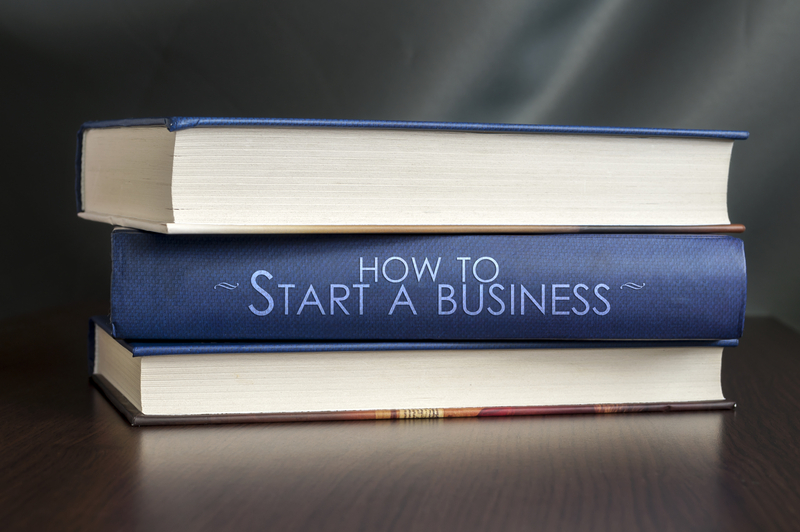Starting a business is exciting! It’s also scary! Approximately 95,000 new businesses are created each year in Canada while 85,000 businesses close annually. Less than 50% of Canadian businesses last 10 or more years. If you’re thinking about starting a business, there are some important steps that you should know to help promote your chances of success.
- Generate an idea: The hardest part of starting a business is coming up with a great business idea. Watch current business trends. Examine budget and profit potentials. Consider your skills, goals and passions. Do you desire to improve upon existing concepts or contribute something new to the market? Do you want to own your own business or purchase a franchise?
- Do the research: Market research combines consumer behaviour and economic trends to confirm and/or improve your business idea. It helps determine if there is an opportunity to turn your idea into a successful business and helps you reduce risks. Have a look at the demographics of your potential customer base (age, wealth, family, interests, income). If possible, talk directly to potential customers (surveys, questionnaires, focus groups, in-depth interviews). Observe your potential competitors. Peruse their websites. Talk with similar businesses. Keep up with the latest small business trends.
- Choose a business structure: Which of the three basic business ownership structures you choose influences your day-to-day operations, taxes, personal liability, risk, capacity to acquire finances, etc. A sole proprietorship is a business owned by a single individual, is easy to form and gives you complete control of your business. A partnership is a company jointly owned by two or more people whose shares, rights and responsibilities are spelled out in a partnership agreement. It’s the simplest structure for two or more people to own a business together. A corporation is a business owned by shareholders. This form of business ownership protects its owners with limited liability.
- Develop a business plan that can be presented to investors and lenders. It’s a roadmap for how to structure, run and grow the business. It guides you through each stage of starting and managing your company. The plan should include an executive summary, a company description, market analysis, a description of the organizational and management structure, marketing and sales plan, details regarding products/services offered, financial projections and funding requirements.
- Choose a name that communicates what your business does in a visually interesting, memorable, and positive way. Take into account legal considerations. Protect your name by registering it with the right agencies both federally and provincially.
- Find funding: Your business plan will help you figure out how much money you’ll need to start your business. If you don’t have enough funds of your own, you’ll need to raise or borrow capital. Consider a line of credit, a business bank loan, venture capital, crowdfunding, angel investors, private lenders, a merchant cash advance, invoice factoring, business-to-business lending and/or government-sponsored small business grants, loans and/or subsidies.
- Get a business license: You may need to get a business license before you can operate legally within your municipality. If your city or town doesn’t have a website, you can find contact information for government agencies online.
- Pick a location: The location you choose (including an online store) affects your taxes, legal requirements, and revenue. Take into account the location of your target market, business partners, and your personal preferences. Consider the costs, benefits, and restrictions depending upon location (salaries, minimum wage laws, property values, rental rates, insurance rates, utilities, licencing fees, zoning ordinances, etc.).
- Register for GST/HST/provincial sales tax so you can take advantage of Input Tax Credits which assist your business in recouping GST/HST paid out on purchases for business use.
- Open a business bank account to help handle legal, tax and day-to-day issues. Common business accounts include a checking account, savings account, credit card account, and a merchant services account. Rates, fees, and options vary, so shop around to make sure you find the lowest fees and the best benefits.
Embrace both the excitement and fear of starting a business! Put yourself on the path to successful entrepreneurship. Follow the key steps outlined here to help ensure the success of your endeavour.
Thinking of starting a business? Need help, guidance and advice? Contact Cook and Company Chartered Professional Accountants. Whether you wish to operate a sole proprietorship or a sizable corporation with multiple subsidiaries, Cook and Company uses their experience and expertise to help you. Contact us for a complimentary consultation.
Resources:
- https://blogs.constantcontact.com/starting-a-business/
- https://www.sba.gov/business-guide/10-steps-start-your-business
- https://www.sba.gov/business-guide/plan-your-business/market-research-competitive-analysis
- https://www.sba.gov/business-guide/10-steps-start-your-business
- https://www.thebalancesmb.com/steps-to-starting-a-business-in-canada-2947257
- https://www.ic.gc.ca/eic/site/061.nsf/eng/h_03090.html#point1-2
- https://www.thebalancesmb.com/starting-a-business-finding-business-ideas-2947937
- https://smallbusiness.chron.com/advantages-disadvantages-three-key-methods-forming-business-66750.html
- https://www.canada.ca/en/services/business/start/choosing-a-business-name-3.html

